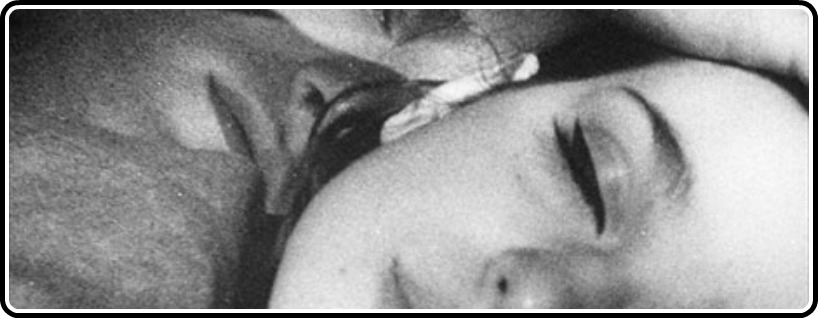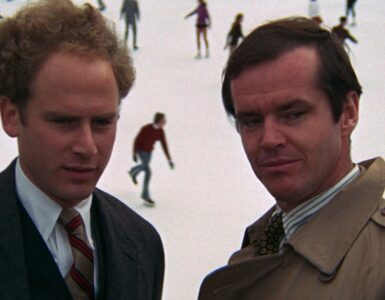Every director starts off somewhere. Often times with a shoestring budget and a collection of actors with about as much experience as you or eye in front of the camera, these “first films” can, more often than not, be classified into two categories. First there are the thrilling, envelope pushing debuts that take the budgetary constraints and use them as a key to unlock such creativity that the film becomes something wholly original. And the others, well, they can be called admirable failures.
However, there are a few debut feature films that defy classification, defy what one should conceptually be able to do the first time jumping behind the camera. Think Citizen Kane. Think a film like Blood Simple. Think a film like John Cassavetes’ Shadows.
Cassavetes’ first directorial effort, this film is not only a genuinely affecting piece of no-budget cinema, but is in many ways the launching pad for both a deeply influential career, and an entire American independent film movement that finds this picture’s energy still being an influence to this very day.
Bowing at the end of the ‘50s, the film hit theaters like a bolt of no-budget lightning, coming in and since changing the entire American independent scene. The film introduces us to Leila (Leila Goldoni), who happens to fall for a man named Tony (Anthony Ray). However, while the relationship itself plays as the film’s main focal point, it’s also important to note that race plays a huge part of this film’s narrative, as the light-skinned African-American Leila has fallen in love with the white Tony. An unforgettable time capsule, Cassavete’s debut film (shot for a mind-blowingly small sum of $40,000) is both a thought-provoking relationship drama and also a turning point for American independent film.
Occasionally, there are films that hit with such force, that they become like a rock in the middle of a stream. Forever altering the flow of that stream, Shadows is very much fitting of that bill. Cassavetes’ directorial aesthetic is this film’s biggest draw, and in turn become one of the most influential styles in all of American cinema. Bred entirely out of acting improvisations, the film has a spark under its skin unlike anything you’ll find in American cinema prior, or following. A watershed moment for independent film, this contrast-heavy black and white film is breathlessly kinetic, featuring claustrophobic close ups, wonderfully lit interiors and some of the most interesting shots of New York City ever committed to film.
And, like many great first feature films, or any great and important envelope pushing features, it still feels as fresh (if not more so) today as it did when it first arrived in theaters. The film’s ever talked about sense of realism, energy and naturalism is still influential with regards to independent cinema, with handfuls of shots (particularly its strict use of close-ups) being used to this very day, the film feels almost more alive today than it has ever felt. Impressionistic and dynamic in every way cinematically imaginable, the film feels completely rough around the edges, but in a way that breathes new life into what one believes cinema can truly be.
Performance wise, the film is, once again rough, but once again utterly vital. With great turns from the likes of Goldoni, Ray, and co-stars Ben Carruthers and Hugh Hurd, the film doesn’t just derive its sense of pure and unbridled cinematic energy from its avant-garde director. Again, with much of its narrative drawn from improvisation work, the film feels rough around all of its edges, but in a way that doesn’t feel as though it takes away from the film’s power. If anything, this roughness brings with it an entirely new level of depth and power rarely mined by even the best of American independent film that has cropped up since this groundbreaking film’s release.
With a percussiveness, say a punk rock-nature, found within something like the French New Wave, this game-changing drama is, from its black and white photography all the way down to its breathless jazz score from Charles Mingus, is as influential and important a film as the American independent film scene has ever seen come across its screen. And now, as part of Criterion’s much anticipated Blu-ray upgrade of their John Cassavetes: Five Films box set, it’s finally arrived in wondrous HD.
Always standing as a definitive restoration for The Criterion Collection (hence the enthralling restoration demonstration found on this release), the Blu-ray edition looks breathtaking. With a crispness that both updates the picture while never allowing for the kinetic energy of each frame to dissipate, the audio and visual aspects of this release are top notch. The Blu-ray ports over the demonstration, some silent footage from the Cassavetes-Lane Drama Workshop from which this picture arose, and some stills, posters and a trailer. However, instead of standing as its own disk like in the first release, the 200 minute documentary A Constant Forge: The Life And Art Of John Cassavetes is included here. A supremely dense look at the legendary filmmaker, this is a must watch for any cinephile.
Next up? We will discuss a film that arrived roughly a decade later, Faces.





![Bergman Island (The Criterion Collection) [Blu-ray]](https://criterioncast.com/wp-content/uploads/2022/11/bergman-island-the-criterion-collection-blu-ray-400x496.jpg)
![This Is Not a Burial, It’s a Resurrection (The Criterion Collection) [Blu-ray]](https://criterioncast.com/wp-content/uploads/2022/11/this-is-not-a-burial-its-a-resurrection-the-criterion-collection-blu-ray-400x496.jpg)
![Lars von Trier's Europe Trilogy (The Criterion Collection) [The Element of Crime/Epidemic/Europa] [Blu-ray]](https://criterioncast.com/wp-content/uploads/2022/11/lars-von-triers-europe-trilogy-the-criterion-collection-the-element-of-400x496.jpg)
![Imitation of Life (The Criterion Collection) [Blu-ray]](https://criterioncast.com/wp-content/uploads/2022/11/imitation-of-life-the-criterion-collection-blu-ray-400x496.jpg)
![The Adventures of Baron Munchausen (The Criterion Collection) [4K UHD]](https://criterioncast.com/wp-content/uploads/2022/11/the-adventures-of-baron-munchausen-the-criterion-collection-4k-uhd-400x496.jpg)
![Cooley High [Criterion Collection] [Blu-ray] [1975]](https://criterioncast.com/wp-content/uploads/2022/11/cooley-high-criterion-collection-blu-ray-1975-400x496.jpg)